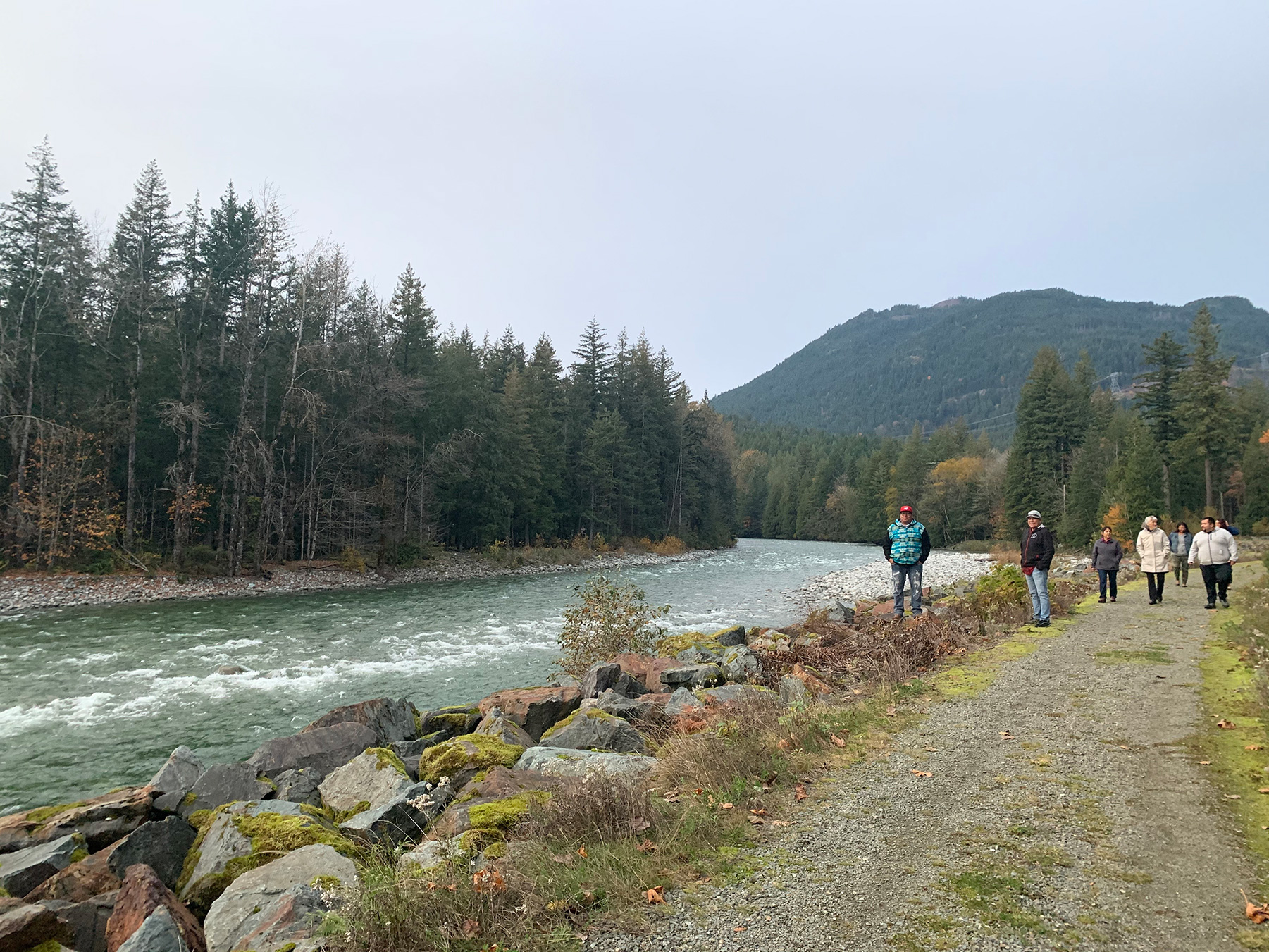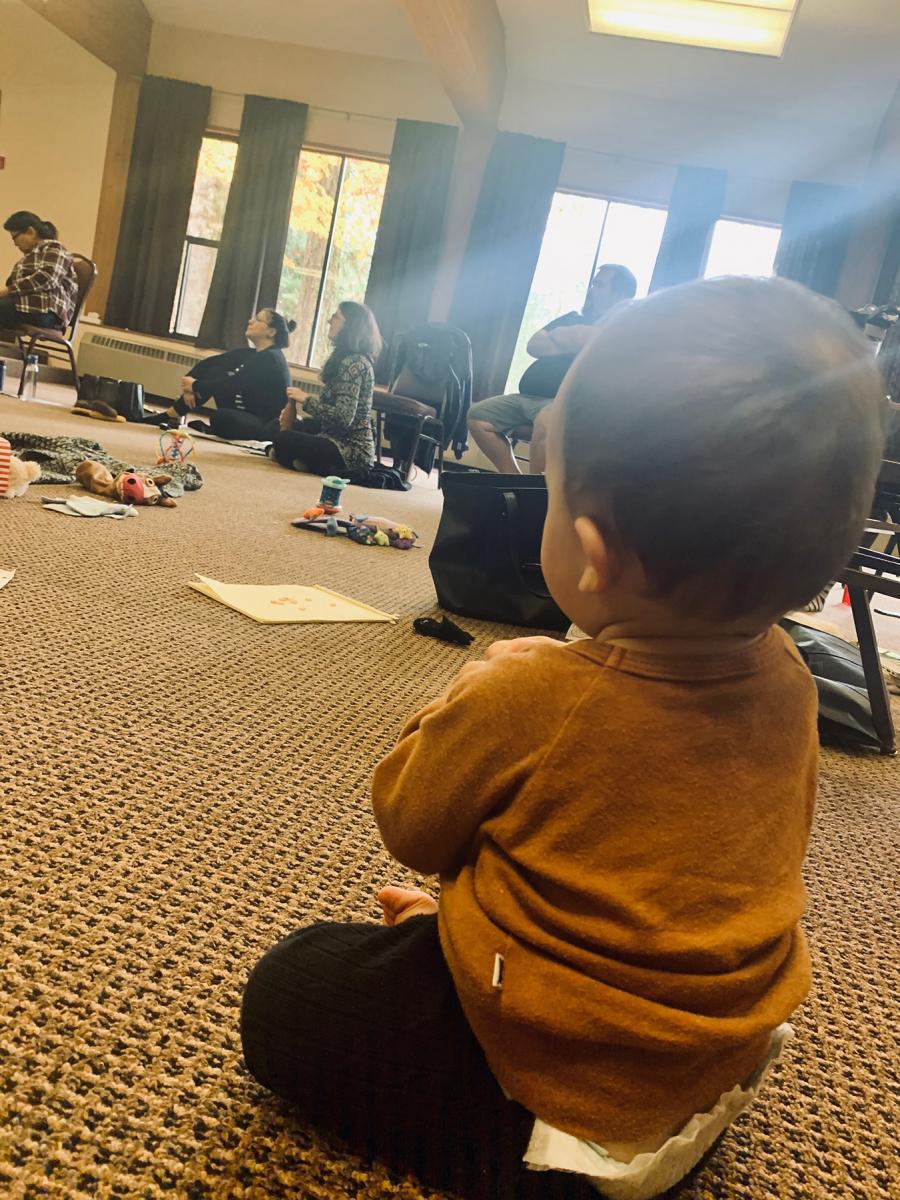
**TRIGGER WARNING**
I am a staff lawyer at West Coast and I work with our Access to Justice and RELAW (Revitalizing Indigenous Law for Land, Air and Water) Programs. I am a mother, I am a daughter, and I am the granddaughter of Lottie and Isaac Lindley, who both attended the Kamloops Indian Residential School in Secwépemc Territory. I also work in the building and my office is #215.
The numbers #215 written above my door will never go unnoticed by me again after hearing the announcement of the 215 children who were found here. Every day that I walk freely into this building and into my office, I will look at the number 215 above my door and remember the children who never made it out of here. I will also remember the ones who did, including my grandparents who went on to bring 9 children, 29 grandchildren and 34 great grand children into the world. The work that I do is for them and for those to come.
Working with Indigenous communities to revitalize their laws can be really healing work. I am very privileged to be working on a project that is focusing on my own legal tradition. I am honoured to be able to learn my own stories, and my own laws and my own language and be surrounded by gifted knowledge keepers, some of whom are my relatives.
For the same reasons, this work can be really heavy. Thinking daily about the impacts of colonization, seeing the damage it has done to our land and our families can be a lot to handle. Sometimes, I feel really inspired and ready to put my soul into the work and other days I feel like I need support.
In reflecting on this, I have come up with a few ways that I have felt supported in my own work and wanted to share those with others who might be looking for ways to offer support to Indigenous people.
 1. Flexibility in work arrangements: Work arrangements that require sitting in a desk in front of a computer screen for 8 hours a day have been really challenging for me. Not only because I want to be able to move freely, but also because I am a new mom, and it can be really unsettling to bring my daughter to day care some days.
1. Flexibility in work arrangements: Work arrangements that require sitting in a desk in front of a computer screen for 8 hours a day have been really challenging for me. Not only because I want to be able to move freely, but also because I am a new mom, and it can be really unsettling to bring my daughter to day care some days.
The stories I have been told about children being taken from their homes and forced into residential schools have triggered a maternalistic need in me to keep my baby close. If I need to bring her to meetings with me, I have been not only allowed but encouraged to do so.
Indigenous law revitalization work has also taught me that I am a cyclical being and it is important to pay attention to the seasonal changes both outside and inside of myself. Sometimes this means going inward for the day and limiting my screen time if I feel that it is necessary. If I am going into a meeting where we are talking about water, I will go down and walk by the river first. Having the flexibility to feel free and incorporate spiritual practices in my work day is one of the biggest ways that I feel supported.
2. Encourage land-based work/learning: Our RELAW Program offers retreats three times a year where we gather together on the land to do the work. We hold ceremonies, we tell stories around the fire, and walk out in nature. These types of gatherings help me to feel really connected to the land and to the people that I am working with.
Working remotely during the pandemic has been challenging given our inability to gather, but it has also provided a lot of opportunities to be creative about where we work. I often take meetings outside or on my phone while I’m out for a walk. During my breaks and even during meetings I often take my shoes off, walk in the grass and feel the support of the earth under my feet. The land is our relative, and to me it is important that when we have conversations about the land it is done in a way that involves that land.
3. Encourage the use of ceremony: Indigenous laws have a lot of similarities but they are all unique. Ceremonies and spirituality don’t have to mean just one thing and for myself ceremony has taken a lot of forms. When in community, we ask the knowledge keepers what the best way is to open a meeting and they often provide an opening prayer. At West Coast, we take turns as a group coming up with ideas for how to check in and these meetings have led to some really beautiful discussions. We have weekly meetings where we read Indigenous stories and allow their teachings to guide us in our work, and we often begin meetings with breathwork, movement or meditations. These simple ceremonies have allowed me to feel grounded in the work that I’m doing.
4. Offer Trauma-informed workplace training for all staff: Work around Indigenous law revitalization can be understandably triggering for some people. I had often feared that participating in workshops about being trauma-informed would require me to share or address some of my own traumas in a public setting. After participation in these workshops I quickly learned how helpful and important they were for me as a young lawyer and new facilitator, in learning how to hold space for others in a trauma-informed way. I have found the following podcast to be really useful in my work: Myrna Macallum’s podcast on trauma-informed lawyering.
At West Coast, we have also benefited from the wisdom and experience of Jessie Hemphill and Elaine Alec at Alderhill Planning, an Indigenous-owned-and-operated business practicing trauma-informed facilitation “to ensure participant safety, control and comfort in recognition of direct, intergenerational, & historic traumas endured by all Indigenous peoples.”
5. Make space for Indigenous Peoples Day Reflections: Finally, I just want to address the fact that many people will have unique ideas about how to best celebrate Indigenous Peoples Day. For some, that might be attending community gatherings or celebrations, for me, it is connecting with the land and the water. I think that encouraging all staff (both Indigenous and non-Indigenous) to take time to reflect on what this day means for them is a great way to show support. The recent media attention around residential schools has been very eye-opening to so many people around the world and for myself, this day in particular has brought up a lot of emotions. I encourage anyone who is struggling or feeling like they need support to reach out.
For those impacted looking for emotional support, please contact the Indian Residential School Survivors Society (IRSSS) – a BC-wide organization dedicated to providing emotional support and services to Indian Residential School Survivors and Intergenerational Survivors.
- IRSSS Toll-Free Line: 1-800-721-0066
- 24hr National Crisis Line: 1-866-925-4419
- KUU-US Crisis Line: 1-800-588-8717
- Tsow-Tun-Le Lum: 1-888-403-3123
For settlers looking to support their critical work, you can donate directly through the IRSSS website at: https://www.irsss.ca/